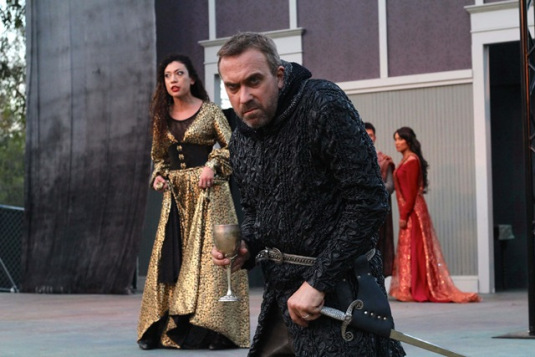OK, I’m late to the party on this one.
Last night, my wife Lisa and I saw part of the final weekend (yes, Wednesday is now a part of the weekend in Griffith Park, Los Angeles) of Independent Shakespeare Company’s FREE production of Richard III. If I say it was worth the price that would sound snarky, but the truth of the matter is that in the run-up to their two-production summer season, I had donated a fairly large chunk of change, and then at the end of the show last night, dropped another $20 into their donation “bucket for ducats” for good measure.

And yes, the show was that good.
With apologies to Elizabeth Barrett Browning, let me count the ways (in an abbreviated Top Five listing, as I’ve got some Macbeth-related fish to fry later in this post):
Continue reading “Review (and more): Richard III by Independent Shakespeare Company”


